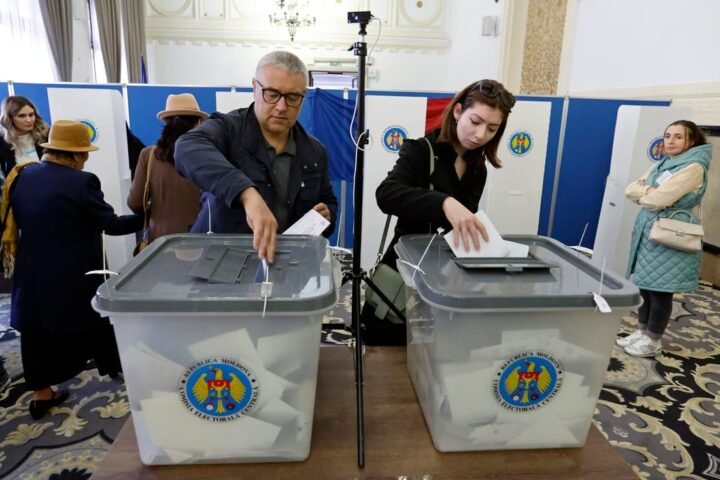Moldovan police conducted a raid at a printing facility in Chisinau, discovering over 200 ballots marked with the stamp “Votat” (“voted”) next to the name of the pro-Russian political bloc, Bloc “Alternativa”. Authorities said the ballots could be part of a scheme to manipulate the upcoming September 28 parliamentary elections. Bloc leader and Chisinau Mayor Ion Ceban denied wrongdoing, claiming the ballots were samples for campaign advertising and vowed to challenge the police action in court.
Allegations of electoral fraud and “carousel” voting scheme
Moldovan police indicated the discovered ballots could be linked to an alleged “carousel” voting tactic, where pre-filled ballots are illegally inserted into ballot boxes while voters remove clean ballots to reuse in repeated voting rounds. Police informed the Central Electoral Commission of their findings, raising concerns about electoral integrity in the tense pre-election period.
Pro-Russian blocs face scrutiny amid declining support
Bloc “Alternativa,” led by Ion Ceban, currently polls at around 6%, showing a downward trend attributed to sanctions against Ceban, including a ban on entry to Romania and the Schengen area. Moldova’s electoral law sets a 7% threshold for blocs to enter parliament, compared to 5% for individual parties. Other pro-Russian groups, such as the “Patriotic Electoral Bloc” and smaller parties linked to fugitive oligarch Ilan Shor, have been reported to use strategies including voter network building, targeted disinformation campaigns, and opaque financing via cryptocurrency and Russian banking channels.
Broader security threats and foreign interference
Russian investment of up to €200 million has reportedly fueled destabilization in Moldova through voter bribery, organized protests, and information warfare. Authorities also point to potential involvement of pro-Russian communities in the Transnistrian region, where Russian peacekeepers are stationed. On September 22, Moldovan police detained 74 individuals allegedly trained in Serbia in armed conflict and public order disruption, suggesting preparation for orchestrated unrest with confirmed links to Russian intelligence and Moldovan political networks.
Implications for Moldova and regional stability
If pro-Russian forces secure a parliamentary majority, analysts warn this could lead to the impeachment of pro-European President Maia Sandu, a shift in Moldova’s foreign policy, and heightened risks to Ukraine’s southern flank due to Russian forces in Transnistria. Conversely, maintaining Moldova’s pro-European course would challenge Russia’s strategy in Eastern Europe and serve as a deterrent to future influence operations.










